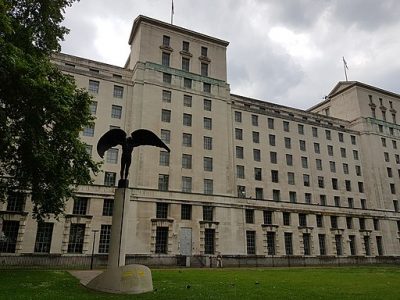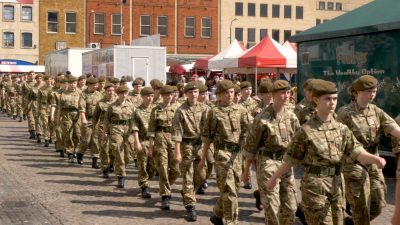Military ethos – where’s the evidence?
National Youth Agency
Jon Boagey, operations director [at the National Youth Agency], asks why military ethos doesn’t seem to need evidence to get government funding.
Education Secretary Nicky Morgan announced in December a further £4.8m funding to continue support for military-style character building in schools. This follows grants of £8.2m between 2012-14 so former armed service personel can help young people do better at school and develop their character, including values such as self-confidence, respect and leadership.
I’ve got nothing against ex-forces staff working with young people. Looking at the lineup of funded organisations, which include Commander Joe’s and the Prince’s Trust, all of them run programmes that provide adult role models, extra-curricular activities, personal organisation, structure and support for at risk young people. This isn’t a million miles from youth work. And it’s not square bashing either. It is what they call Military Ethos Alternative Provision.
What rankles is a deeper frustration about how this approach to learning is recognised and valued.
Whilst the DfE’s press release in December gave us lots of impressive performance percentages and personal testimonies, the project evaluation made it very clear that the evidence base was shaky. ‘In undertaking this review the research team identified a range of issues which, together, undermine the potential for impacts to be attributed to the Military Ethos programme which would stand up to external scrutiny,’ it said.
The DfE provided over £8m of financial support for which there was no requirement to undertake evaluation: funded organisations were only required to complete a basic monitoring template. It makes the evidence base for this approach seem a little insubstantial.
For some time the NYA and others have worked on how we can better evidence the impact of youth services through initiatives such as the DfE funded Catalyst, C4EO and Project Oracle. Almost all the major funding in our sector is tied to the measurement of outcomes or payment by results: impact bonds and other forms of performance-related funding are becoming commonplace. The Cabinet Office too has sought to bring a greater rigour and structure to all this by funding the Centre for Youth Impact. The Centre’s argument is that if youth services can better evidence the impact of their work they are more likely to get funding.
In 2013 the NYA published the findings of a Commission chaired by Tim Loughton MP into the youth work contribution in schools. We were bowled over by the response from teachers – hundreds replied to a survey and provided evidence of the impact that youth workers made to the attainment of young people – to their resilience and personal development. Regrettably there was no interest from the DfE in spite of our attempts to meet with officials.
There is just as much evidence that youth workers make a difference to young people’s educational attainment as former soldiers do. If we want opportunities for young people to develop the character and resilience they need to succeed in modern Britain we need a more consistent funding strategy for alternative provision of this kind in schools. If there’s a place for former soldiers the DfE also needs to recognise the contribution of youth work – if we really think character can shape the economy then we need to invest in it properly, based on an open review of the evidence.
See more: military in schools/colleges, character building, education, military ethos










